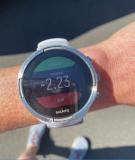Folders |
Running Issues: You're Not Alone. Call When You Need HelpPublished by
What To Do If You're Struggling With Disordered Eating And Other Mental Health Issues During The Pandemic By Elizabeth Carey for DyeStat Let’s be honest. Everyone struggles. And many within the athletic community struggle with food and body issues, and also general mental health. I’m hearing more about these struggles recently. Others are noticing, too. The National Eating Disorders Association (NEDA) has seen a notable increase in outreach to its helpline this year. There was a 94 percent increase in the total volume of Helpline contact from March to September compared to last year, and an 89 percent increase in Helpline chat volume in the same time period. Megan Medrano, a registered dietitian and owner of Run Whole Nutrition says she’s “noticed a huge uptick in athletes struggling with food and body issues. For many, it seems to have to do with the fact that the pandemic has taken away a lot of our traditional coping mechanisms — connecting with friends (and) family, doing meaningful activities, being connected to others.” “Eating disorders thrive in isolation. Also, for athletes, there isn’t much to do other than run or exercise. It’s one of the few ‘safe’ activities! Because of that, a lot of athletes and non-athlete alike, are turning to compulsive exercise for something to do, and easily get dependent on it,” she says. Stress is a natural response. How we cope with it and how it manifests from athlete to athlete and coach to coach varies. Ongoing stress can wear on us and affect health, well-being and performance. Stressors — the pandemic fears, election anxiety, racism, climate change, problems with virtual school, etc. — can aggravate mental health issues including disordered eating. You’re not alone. We’re all stressed. Even elite athletes. Strava and Stanford University surveyed 131 professional endurance athletes. The athletes reported feeling more down or depressed, and nervous or anxious, during COVID-19 restrictions. You’re not alone. Disordered eating runs through our sport and culture (a double whammy). No matter what you hear or see or read, fixating on weight, appearance and dieting is not helpful. Athletes are two to three times more likely than the general population to have an eating disorder, according to Walden Behavioral Care. Eating disorder recovery takes time, work, navigating triggers. (But yes, it is possible!) As pro runner Amelia Boone has written for Lane 9, “I know that I’m stronger in my recovery the more I discuss, learn, and help.” Communities like Lane 9 and Strong Runner Chicks, along with treatment centers, keep these discussions going. For example, Opal Food and Body has a pertinent, thoughtful podcast aptly named The Appetite. You’re not alone. Especially if you’re seeking treatment for mental health. Based on a nationwide survey, the CDC estimates that 23 percent of the US took prescription medication for mental health and/or recieved therapy or counseling in the past four weeks. That's a staggering number. Psst! Research has yet to conclude how psychiatric drugs affect performance, especially for women. As with approaches to training and nutrition, mental health treatment is a highly variable, individual experiment. As a former coach of mine, David Roche, wrote recently, “Antidepressants can change lives. Antidepressants can save lives. And antidepressants can help support long-term athletic breakthroughs.” You’re not alone. Cultivating well-being and mental health takes a village. Whether you’re recovering from an eating disorder or feeling down in the dumps, know you matter. People care about you. I do. Tending to your mental health includes daily practices (besides running and working out). It includes advocating for yourself. Check out the tools I’ve mentioned in previous columns, including writing, tantrum journaling, and mindfulness. To that list, add apps that may help manage emotions and stress. From COVID Coach and Mood Meter to Headspace and Insight Timer, some digital tools can foster emotional awareness and mindfulness. Lay off the doom-scrolling, though. If feeling overwhelmed or strong emotions persist, please seek help! If you’re feeling depressed, anxious, exhausted, irritable, insomniac, or similar, or noticing disordered eating thoughts or behaviors, reach out to a mental health or healthcare professional. Or at the very least someone you trust. Perhaps start with your coach, athletic trainer, doctor, or school counselor. Ideally, they can refer or recommend a professional with spot-on expertise and care. Ideally, that person considers the unique social and cultural pressures you face. Ideally, that person listens with empathy. Ideally, that person pulls in other experts, like a registered dietitian, to support your recovery. (In our book Girls Running: All You Need to Strive, Thrive, and Run Your Best, Melody Fairchild and I identify additional experts you might want to call on and what credentials to look for.) Medrano recommends young athletes struggling with food or body issues get connected to a treatment team. “Most practitioners are offering virtual sessions, which can help tremendously. I’ve also been encouraging my clients to find new ways to cope with anxiety and stress that don’t involve exercise alone. You might have to get creative if you are used to doing things out of the house, but this can be a great and important time to practice rest, find new hobbies, and explore other ways to take care of yourself,” she says. If you’re uninsured or need free or low-cost resources, there are options. Some insurance companies have waived therapy copays. Some eating disorder treatment centers provide financial assistance. Project Heal is working to improve access to treatment. Here are additional resources. Remember, of course, that online sites, blogs, and social media aren’t a substitute for actual treatment and this column isn’t either. National Eating Disorders Association 1-800-931-2237 Text NEDA to 741-741
National Suicide Prevention Lifeline 1-800-273-8255
Substance Abuse and Mental Health Services Administration Disaster Distress Hotline 1-800-985-5990 Text TalkWithUs
National Domestic Violence Hotline 1-800-799-7233
National Sexual Assault Hotline 1-800-656-4673 Online.rainn.org ### Elizabeth Carey (https://elizabethwcarey.com/) is a writer and running coach based in Seattle, Washington. Her first book, GIRLS RUNNING, co-authored with Melody Fairchild, is available at your local book store and here: https://shop.aer.io/GirlsRunning/p/Girls_Running_All_You_Need_to_Strive_Thrive_and_Run_Your_Best/9781948007184-9934.
|








